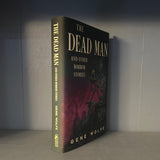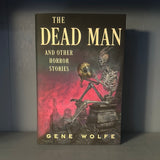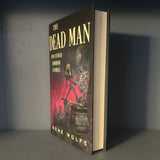The Dead Man and Other Horror Stories
Although best known for his world-building Book of the New Sun science-fantasy saga, Gene Wolfe wrote brilliant fiction that resisted encapsulation within rigid genre categories. This volume collects twenty-eight tales spanning nearly a half century—six of them never before collected—and gathered from venues as varied as men’s magazines, periodicals devoted to short works of fantasy and science fiction, and tribute anthologies to the works of authors as wildly opposed in their literary visions as Dante and H. P. Lovecraft. Although selected for their overtones of “horror,” they frequently defy the conventions that contemporary category label conjures.
Take “Talk of Mandrakes,” a tale of malignant exo-biology spun from an ancient occult legend steeped in sex magic. Or “The Other Dead Man,” a story set aboard an interstellar spacecraft that would distinguish any anthology of zombie fiction it appeared in. “Innocent” is cast in the form of a dramatic monologue whose creepy first-person narrator details increasingly aberrant behavior that defies the formal psychological diagnosis it cries out for. And “In the House of Gingerbread” recasts a classic children’s fairy tale as a dark noir whodunit.
To be sure, Wolfe willingly embraced horror’s classic tropes, but he reworked them into remarkably original signatures through his personal creative ingenuity: There is much lycanthropy, but nary a hairy transformation in his futuristic “The Hero as Werwolf.” “The Vampire Kiss” reinterprets its titular monster as a scourge of the poor in Dickensian London. And in “Why I Was Hanged,” the disadvantages of accepting advice from the ghosts of the living are made abundantly manifest.
Their macabre inflections notwithstanding Wolfe’s horror stories abound with affecting character studies that cleave the distance between the horrible and the human: the changeling child adapting to an unfamiliar life as a mortal in “Queen of the Night”; the investigator in “The Detective of Dreams” dedicated by occupation to freeing his clients from their nightmares; the woman in “Uncaged,” whose feral persona may be an expression of her true self. Wolfe’s tales of horror, like all of his fiction, are stories in which readers—however uneasily—recognize, and relate to, much of themselves.






